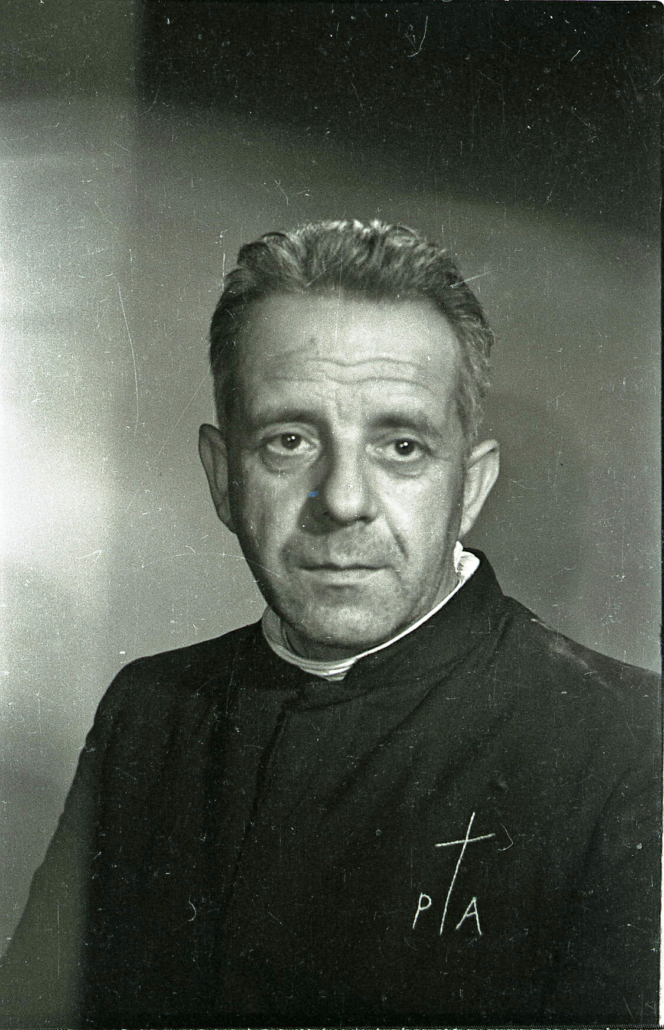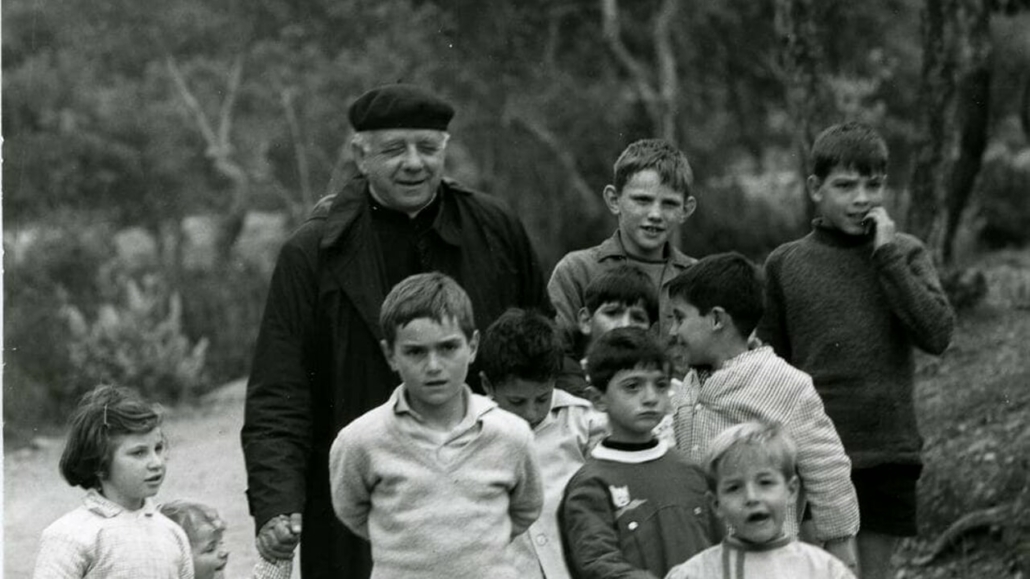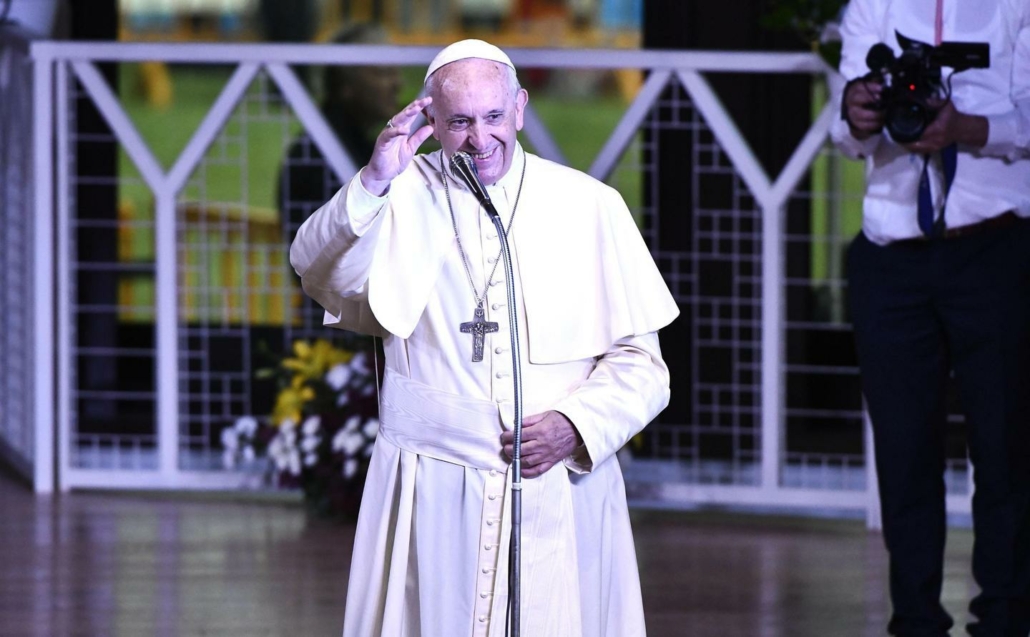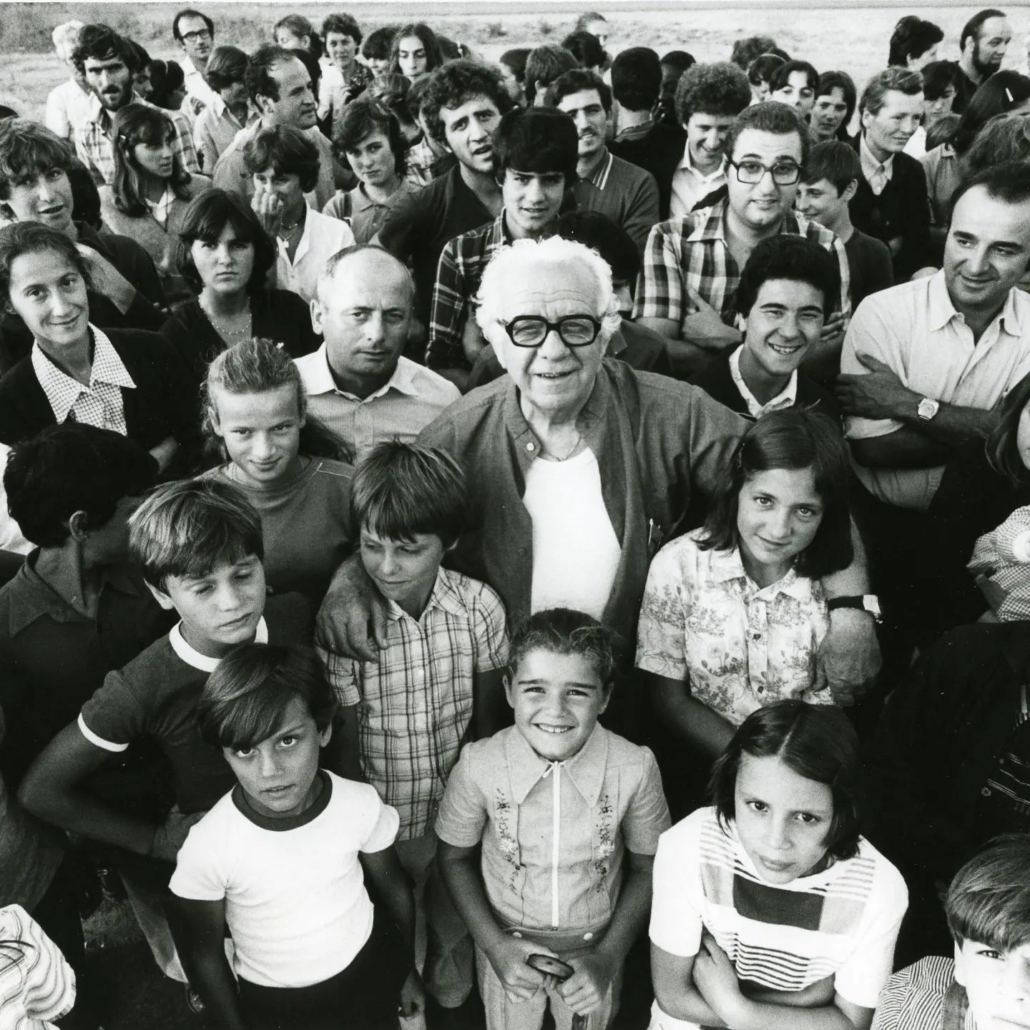On January 15, 1981, one of the great benefactors of children and humanity, the Italian priest Don Zeno Saltini, passed away. He founded the special community of Nomadelfia in Grosseto, Tuscany.
The well-known Italian journalist Enzo Biagi (1920-2007), who had a long career on RAI, once said: “I think that in the post-war period, Italy had three true revolutionaries: Don Zeno, Don Mazzolari, and Don Milani. I knew Don Zeno; I saw him when he couldn’t celebrate Mass anymore, and there were times when he went back to celebrating it with a heavy heart, and the children of Nomadelfia were around him, holding candles. To his enemies, he offered insults and humiliations, but he remained serene even when he was very ill.”
Biagi said that Don Zeno used to say in his preaching: “It’s not just about bread; there is a great need for love.” Don Zeno “believed that a person is good, and for the children he gathered, because they were orphans, he instilled in them the idea that ‘A mother never dies,’ and he trusted them to a woman. In the end, he summed up everything in the words: ‘Not everything was in vain, not everything was lost.’ That’s how he was.”
The Beginning
The tenth of twelve siblings, Don Zeno Saltini was born on August 30, 1900, in Fossoli, Carpi, in the province of Modena, in Upper Italy. His family was engaged in agriculture. Three others among his siblings chose the religious life, including his sister Marianna, also known as Mamma Nina. At the age of 14, Zeno decided to quit school and began working on the family farm, where he encountered the harsh reality of the workers, from whom he learned Socialist theories.
In 1917, during the First World War, Zeno was conscripted. It was during this time that he understood the importance of good education. He engaged in debates with his atheist and anarchist comrades, who saw Christianity and the Church as obstacles to human progress. He wanted to tell them that the problem lay in the inconsistency of certain Christians but did not succeed.
With the intention of becoming a lawyer, he graduated in Law from the Catholic University of Milan. However, he realized that his true calling was to become a priest. Therefore, at the age of 30, he studied theology and philosophy and was ordained a priest by the Bishop of Carpi, Giovanni Pranzini. The bishop had previously experienced social work and provided spiritual guidance in his priestly vocation.
During that time, and after the Second World War, there was a lot of poverty in Italy. Don Zeno, with open eyes, saw this reality and wanted to make a difference. In 1931, he was appointed Vice Parish Priest of the Church of San Giacomo Roncole. Here, he founded the Small Apostles’ Work (Opera dei Piccoli Apostoli) to gather the war orphans and abandoned children, restoring their human dignity.
Irene, the First “Mamma”
But Don Zeno was not satisfied that these young children had the same great need as any other boy or girl. They needed a mother who would care for them as if they were her own. He started entrusting them to older youth, but it wasn’t satisfactory. Then, a girl named Irene Bertoni came forward, more mature than her age. In 1941, at the age of 18, a high school student, she ran away from home to become a mother to these children. She became the first “mamma di vocazione,” meaning a mother not because she was married but because she was called to care for other people’s children. Not everyone took the idea lightly. Her friend Fina recounts the story of Mamma Irene:
“Irene went to the Bishop. She was trembling that the Bishop would scold her! And she said to him: ‘Excellency, I am the mother of these children.’ ‘How? If you are 18 years old! At that age, one is only six years old.’ ‘Yes, yes, I am the mother, but I entered…’ The bishop knew what she had done, and he said to her: ‘Mother? But do you know what it means to be a mother? How do you know? What are you doing? You are still young! It could be such a big problem that in history, this piece of work has not always succeeded. How can you say that you are their mother?'”
“I love them as if they were my own”
The Bishop brought her into his office, and she began to tremble, anticipating what he would say to her. During their conversation, when she realized that the Bishop was still questioning her, asking, ‘What are you doing? How will you do it? Do you know what it means? If you are a mother, you will be tied to these children for your entire life. Are you ready to give your life for them?’ When she saw that she couldn’t convince him, she stood up with determination and, with a grand gesture, as if describing something significant, she said, ‘In short, Excellency, I love them as if they were mine, as if they were born from me.’
‘Go,’ the Bishop said to her. ‘Go with your vocation.’ He admired her greatly: ‘If a child opens his mouth and says the word ‘mom,’ it won’t be the bishop who closes those little mouths. This is your decision, and it comes from God and the Church.'”
New Families
After Irene, other girls felt the vocation to become mothers and began raising the war orphans of Nomadelfia, located near the city of Grosseto and formerly a concentration camp. Following Irene, came Maria Teresa, Norina, Jemina, Giselda, Elis, Enrica, Ada, Sirte, Zaira… and Anna.
With Anna, the bride of Nelusco, Don Zeno convinced himself that he needed to involve married young couples in the communal experience following the example of the early Christian communities. On December 26, 1947, Don Zeno married Nelusco and Anna, and during the same celebration, they adopted five abandoned children. Over time, these adopted children grew to fifty, and other married couples followed suit.
In this way, these adopted children formed families in Nomadelfia, either in the families led by the “mamme di vocazione” (mothers by vocation) or in the families of married couples, embodying the words that Jesus spoke from the cross to his mother and the apostle John: “Woman, behold your son. Son, behold your mother.”
Nomadelfia
On February 14, 1948, the Constitution of this city was signed on the grounds of the Church. Thus, the Piccoli Apostoli (Little Apostles) Work became Nomadelfia, with the Greek meaning “fraternity is law.” Don Zeno transformed this place into a community where its members shared everything, much like in the time of the apostles.
Don Zeno aimed for Nomadelfia to produce everything its members needed: food, clothing, tools, furniture – everything was shared in houses and in workplaces, and money did not exist, nor did private property. Education was also provided in the school, but later, higher education was pursued in public schools. When individuals reached a certain age, they decided whether to continue living in Nomadelfia or to leave and live on their own.
As time passed, children grew up, got married, had their own children, and some even adopted children from outside the community. The community expanded to accommodate a thousand members.
Facing Challenging Times
However, not everyone within the Church and the State admired Don Zeno’s work. He continued to criticize what he was doing and spread falsehoods about him.
In 1952, on February 5th, a decree was issued by the Holy Office, and Don Zeno was ordered to leave Nomadelfia. The community of Nomadelfia was declared dissolved and dispersed. In November of the same year, Don Zeno and other leaders from Nomadelfia found themselves on trial in court, charged with debts that were not justified. The trial took place in Bologna in the presence of journalists from leading Italian newspapers, and with good advice, Don Zeno and his friends were acquitted of all charges.
But Don Zeno was not content. The storm continued to rage, and the only defense he had was the strong quill of his pen. He wrote several powerful letters to Pope Pius XII, John XXIII, and Cardinal Ottaviani. Don Zeno could not bear the fact that some of his children, who had been declared dispersed, were also mistreated by the police, and some even found themselves imprisoned.
In order to be able to be with them again, by his own choice in 1953, he requested and obtained permission for laicization, meaning he would no longer exercise the ministerial role of a priest. He was reinstated, but in 1962, he applied for and received permission again to exercise the priestly ministry. On January 22, 1962, he celebrated for the second time his “first Mass,” and the bishop appointed him as the first chaplain of Nomadelfia.
Don Zeno passed away at the age of 80 on January 15, 1981, after meeting with Pope John Paul II in August of the previous year in an audience at Castel Gandolfo.
Pope Francis in Nomadelfia
On May 10, 2018, Pope Francis arrived in Nomadelfia by helicopter from Rome. As he arrived at the cemetery of Nomadelfia, after being presented with a sculpture from Don Zeno’s spiritual testament, the Pope prayed at the grave of this Servant of God, who had initiated the cause for his beatification twelve years earlier. Pope Francis placed a stone with his name on it, along with the others placed by the inhabitants of Nomadelfia. He also prayed at the graves of Mamma Irene and a little girl, the youngest among the “Nomadelfi.”
Then, the Pope visited “Poggetto,” a group of family homes, where married couples live, fostering children as their own. He visited the family nucleus, the central house, and the small chapel where two families with the words “Woman, behold your son” each care for two children.
Nomadelfia Today
Nomadelfia, located eight kilometers from Grosseto, has a territory of about four square kilometers where 300 inhabitants, including 50 families, live. According to Canon Law, Nomadelfia is a parish formed by families and laypeople who are not married, while in the Italian Republic, it is a private association of citizens.
Members of Nomadelfia work within the community without receiving a salary. Work is seen as an act of love and shared responsibility. Property is collective, and what individuals own is only to enable a dignified life.
Nomadelfia families live in “family groups” made up of four or five families, with 20 to 35 members in each group. Nomadelfo status is achieved after a trial period of at least three years. This rule also applies to children born or adopted into the community, who, upon turning 18, are free to make their choices. Children who leave the community are encouraged to enter the world of work and society while remaining connected with their families.
“ He wasn’t just a priest “
The author Anna Maria Ortese said about Don Zeno: “He wasn’t just a priest, but something more. He wasn’t a politician, despite his criticism against individuals and actions taken by the government; not even diplomatic, as he lost everything. Not even an educator, because his rough character would not allow it. We use to ponder about this good man, loyal, impulsive, filled with passionate love for a family who so different from him: a lively, generous, tender person, with a mind full of dreams… but it remains difficult to define.”
Robert Aloisio
SDC Member
